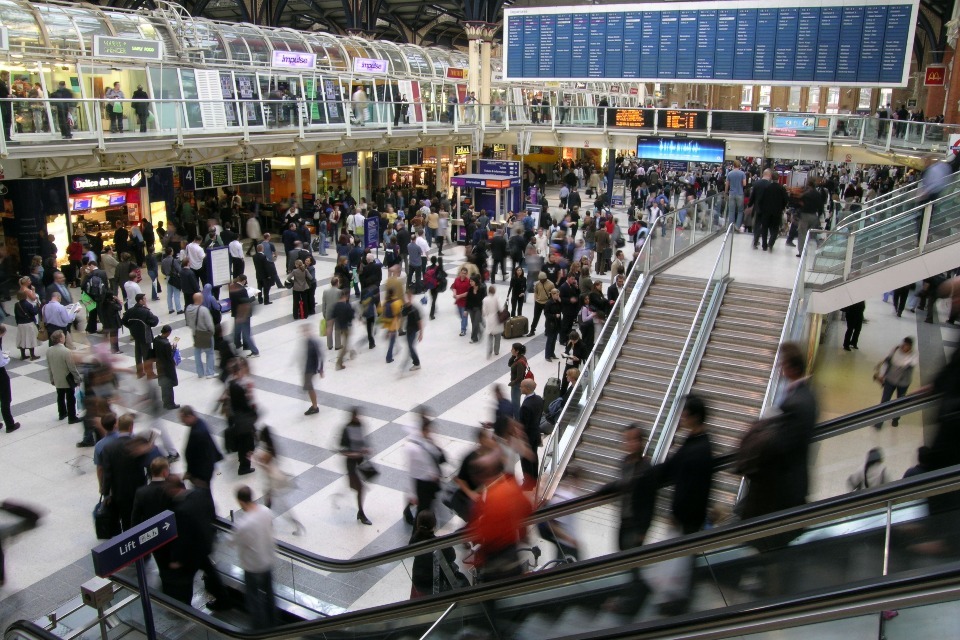- plans unveiled for landmark rail reform bill to establish powerful passenger watchdog
- rewiring of our railways will end decades of poor service, waste and timetable chaos
- unified, simplified railway will put passengers first, raise living standards and boost growth as part of government’s Plan for Change
Plans for a landmark bill to rewire Britain’s railways, including setting up a powerful passenger watchdog to give passengers a voice and hold train operators to account, have been unveiled by the government today (18 February 2025).
This once in a generation overhaul will establish Great British Railways (GBR), a new body bringing track and train together, delivering reliable services for passengers and catalysing growth across the country.
Outlined in a consultation launched today, the plans will smash a broken rail system, put passengers at the forefront of all decisions made on the railways, ending major failures and disruptions like the 2018 timetabling crisis.
Through this consultation, the government will be working with industry to rewire the railways and unite train and track, putting an end to outdated and inefficient processes which have resulted in poor performance, timetable chaos and complex fares and ticketing. It will also rightly be giving devolved leaders more of a say on the services that directly impact their towns and cities, working together to integrate transport making it simpler to travel and attracting more people to our railways.
The new independent watchdog will be tasked with ensuring GBR addresses the issues that consistently rank highest in passenger complaints, rooting out the problems that cause poor journeys, ensuring passengers are given clear information when they travel and help tackle the maze of confusing rail fares and tickets passengers have to navigate.
It will hold operators to account on behalf of passengers and arbitrate where passengers are not satisfied about the handling of a complaint. Working with the Transport Secretary and GBR, it will also be given the powers to set clear standards for passengers on things like journey information and assistance, investigate persistent problems and publish reports on poor service. Where poor passenger experiences are identified, it will be able to refer this to the railway regulator for enforcement action.
Growth is at the heart of this government’s missions and the key priority in the Plan for Change, which is why one of GBR’s guiding principles will be to work closely with the private sector to create jobs and drive investment and innovation.
This includes investing billions of pounds in the private sector supply chain, so that improvements to the network are more coordinated, giving longer-term assurance to businesses. A long-term rail strategy will give industry certainty on what they can expect, including a long-term plan for rolling stock.
Open access services will continue having a place on the network where they encourage growth, improve connectivity and provide more choice for passengers, as long as these benefits are not outweighed by costs to the taxpayer and impacts performance.
Secretary of State for Transport, Heidi Alexander, said:
Passengers have put up with broken railways for far too long. This landmark reform will sweep away decades of failure, creating a Great British Railways passengers can rely on.
We’re giving passengers a powerful voice with a new watchdog dedicated to addressing their biggest concerns, building railways people can trust, improving our services and boosting the economy in the process – the priority in our Plan for Change.
These plans are the next step in establishing GBR, which will end years of fragmentation by bringing track and train together in a unified, simplified railway. As part of the biggest overhaul to the network in a generation, we will be raising living standards and connecting people to work, education, healthcare and leisure, supporting growth across the country.
The consultation also looks more widely at far-reaching reforms and how GBR will interact with the industry to effectively implement its plans to relentlessly focus on driving up standards, boosting our economy and ensuring our railways deliver the services passengers deserve.
Laura Shoaf, Chair of Shadow Great British Railways, said:
GBR will fundamentally change our railways, delivering growth, connections and opportunities across the country.
The plans set out today will mean a better railway for everyone that uses it, allowing industry to work closer together, putting passengers and customers first and providing better value for money for taxpayers.
Andy Burnham, Mayor of Greater Manchester, said:
This is a once-in-a-generation opportunity to overhaul how the railways are run – creating a service that puts passengers first, with more reliable trains and simpler fares and tickets.
In Greater Manchester things are already changing. We’re working in partnership with the government and the rail industry on plans for the next phase of the Bee Network, to join up our trains, buses, trams and active travel routes, moving from a fragmented system to one that is more accountable to our residents. We look forward to helping shape the bill, with a statutory role for Mayors and city regions in making the railways work for everyone.
This government is already working to deliver reforms ahead of Great British Railways being set up, including simplifying fares and modernising ticketing. This includes the rollout of Pay As You Go ticketing to give passengers the ability to travel more flexibly and working with devolved leaders on plans for further expansion in Greater Manchester and the West Midlands.
In addition to this, our flagship Public Ownership Act, which achieved Royal Assent last year, will improve reliability and support the government’s number one priority of boosting economic growth, by encouraging more people to use the railway. This will also save taxpayers up to £150 million a year that will be invested straight back into the railways rather than the pockets of private shareholders.
North East Mayor, Kim McGuinness, said:
Passengers are crying out for a rail service that works for them. We need our train services to be joined up and much more reliable – helping more people get to where they need to be for the right price.
The North East is poised to make the most of the opportunity that rail reform presents to transform the network. Our recent North East Local Transport Plan public consultation shows most people want an integrated network and that’s what I will deliver in North East England. We are already taking steps to integrate rail ticketing in our region with the Metro system but we are ready to do so much more.
A railway fit for Britain’s future consultation starts today and will last for 8 weeks.






